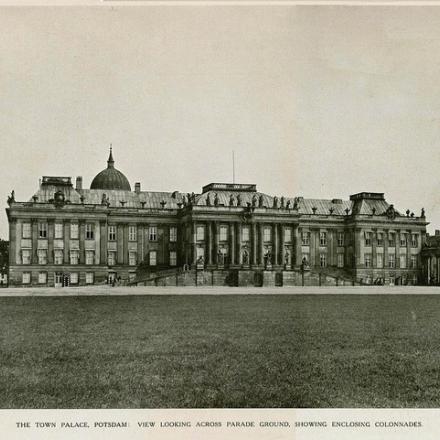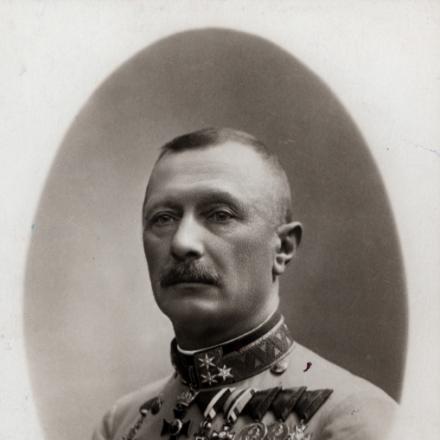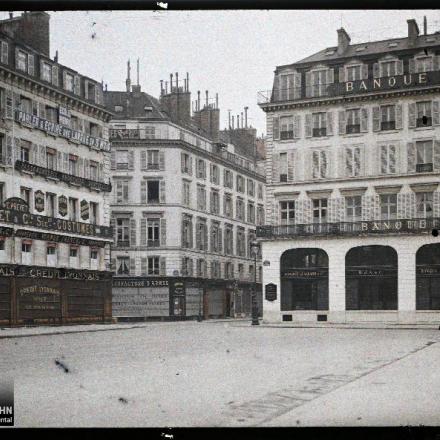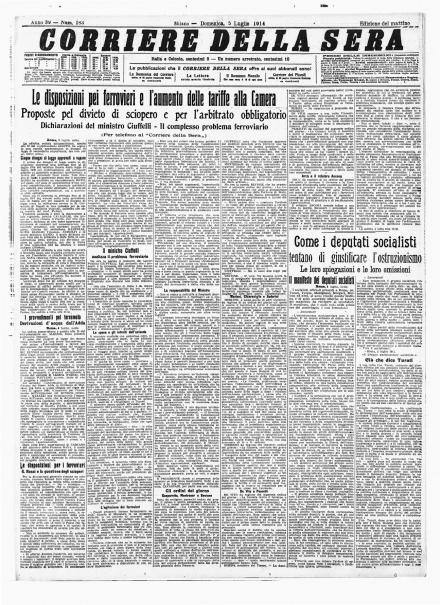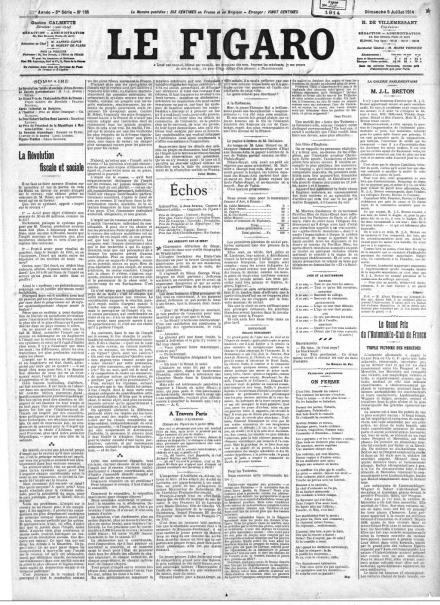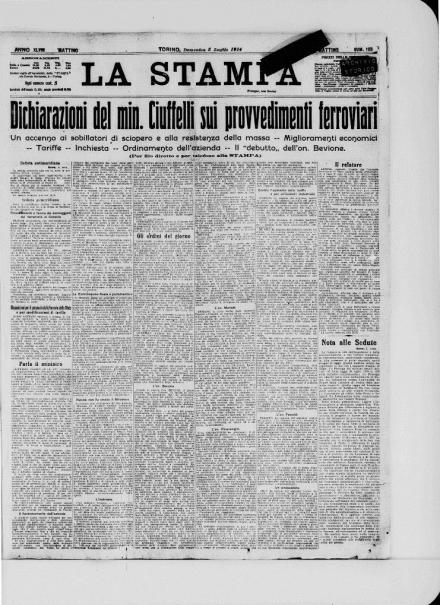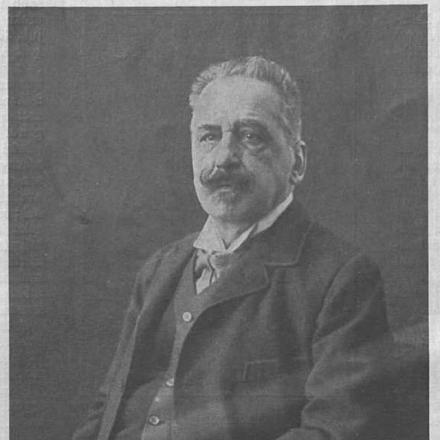Il Kaiser riceve l’ambasciatore austriaco
Non sarà andato al funerale di Francesco Ferdinando, ma domenica 5 luglio Guglielmo II riceve l’Ambasciatore austriaco Szogyeny a Potsdam: gli orizzonti in ballo sono intriganti, c’è da tanto da discutere.
Francesco Giuseppe è stato chiaro nella sua lettera all’alleato tedesco: a suo parere c’è un evidente complotto per colpire la Triplice alleanza, destabilizzando l’Impero austro-ungarico grazie al movimento panslavo. Il nodo gordiano è la Serbia. C’è scritta anche una sacrosanta verità: sarà difficile dimostrare la complicità di Belgrado.
Guglielmo II non ha incertezze al riguardo, l’abbiamo già raccontato. Non ne mostra in generale, non è il tipo. Prima di partire per una crociera al nord, ribadisce a Szogyeny le stesse cose dette il giorno prima dal sottosegretario di Stato Zimmermann a Hoyos: la Germania supporterà l’impero austro-ungarico nell’ora del bisogno.
Si, ma la Russia? Eh no, per il Kaiser i russi non sono pronti per una guerra; bisogna «approfittare del momento attuale, a noi molto favorevole». Di fatto è un assegno in bianco. Conrad, Capo di Stato maggiore asburgico sollecita la mobilitazione generale, ma Francesco Giuseppe resta cauto e rifiuta. Per ora. Le voci corrono, spesso incontrollate o incontrollabili. Per qualcuno ci sarebbero già 325.000 soldati in Bosnia.
Davide Sartori
GLI AVVENIMENTI
Politica e società
- A Postdam il Kaiser Guglielmo II riceve l’Ambasciatore austriaco Szogyeny e offre all'Austria un "assegno in bianco", la Germania appoggerà qualsiasi azione l'Austria deciderà. All'incontro partecipano anche il Cancelliere tedesco Theobald von Bethmann-Hollweg, il Segretario di Stato Arthur Zimmermann del Ministero degli esteri, il Ministro della guerra Erich von Falkenhayn, il Capo della cancelleria militare Moritz von Lyncker, l'aiutante generale Hans von Plessen, il capitano Hans Zenker della marina militare, e l'Ammiraglio Eduard von Capelle della Segreteria di Stato navale.
- Sulla base di ulteriori interrogatori degli arrestati, il Governatore Potiorek è in grado di telegrafare a Vienna che il maggiore serbo Voja Tankosic ha dato istruzioni agli assassini.
- Conrad, Capo di Stato maggiore austroungarico, sollecita la mobilitazione dell'esercito che l'Imperatore austriaco rifiuta.
- Il "Partito della guerra" nel Governo austriaco cerca di ottenere l'accordo del riluttante Tisza.
Parole d'epoca
László Szőgyény
Ambasciatore austriaco a Berlino
Rapporto sull'incontro con il Kaiser
Tel. no. 237 Berlin, July 5, 1914
Top secret
After I informed Kaiser Wilhelm that I had a letter from His Imperial and Royal Apostolic Majesty, which Count Hoyos delivered to me today to present to him, I received an invitation from the German Majesties to a déjeuner at noon today in the Neue Palais [New Palace]. I presented His Majesty with the exalted letter and the attached memorandum. The Kaiser read both papers quite carefully in my presence.
First, His Majesty assured me that he had expected us to take firm action against Serbia, but he had to concede that, as a result of the conflicts facing our most gracious Lord, he needed to take into account a serious complication in Europe, which is why he did not wish to give any definite answer prior to consultations with the chancellor.
When, after our déjeuner, I once again emphasized the gravity of the situation, His Majesty authorized me to report to our most gracious Lord that in this case, too, we could count on Germany’s full support. As mentioned, he first had to consult with the chancellor, but he did not have the slightest doubt that Herr von Bethmann Hollweg would fully agree with him, particularly with regard to action on our part against Serbia.
In his (Kaiser Wilhelm’s) opinion, though, there was no need to wait patiently before taking action. The Kaiser said that Russia’s stance would always be a hostile one, but he had been prepared for this for many years, and even if war broke out between Austria-Hungary and Russia, we could rest assured that Germany would take our side, in line with its customary loyalty. According to the Kaiser, as things stood now, Russia was not at all ready for war.
It would certainly have to think hard before making a call to arms. Nevertheless, it would attempt to turn the other powers of the Triple Entente against us and to fan the flames in the Balkans. The Kaiser said he understood full well that it would be difficult for His Imperial and Royal Apostolic Majesty to march into Serbia, given his well-known love of peace; however, if we really deemed a military operation against Serbia necessary, he (Kaiser Wilhelm) would find it regrettable if we did not seize the present moment, which was so favorable for us.
As for Romania, the Kaiser said he would make sure that King Carol and his councilors acted properly. The idea of entering into a treaty with Bulgaria “is not at all agreeable” to him; he did not have any trust in King Ferdinand or his previous or current councilors. Despite this, he did not want to make the least objection to a treaty between the monarchy and Bulgaria, but precautions had to be taken that the treaty did not contain any barbs against Romania and that this state was duly informed of the proceedings (as was emphasized in the memorandum).
Tomorrow morning, Kaiser Wilhelm intends to travel to Kiel before going on his northern voyage, but before this, His Majesty will confer with the chancellor about the matter at hand. The chancellor has been summoned from Hohenfinow to the Neue Palais in the evening for this purpose. In any case, I will have the opportunity to consult with the chancellor tomorrow.
